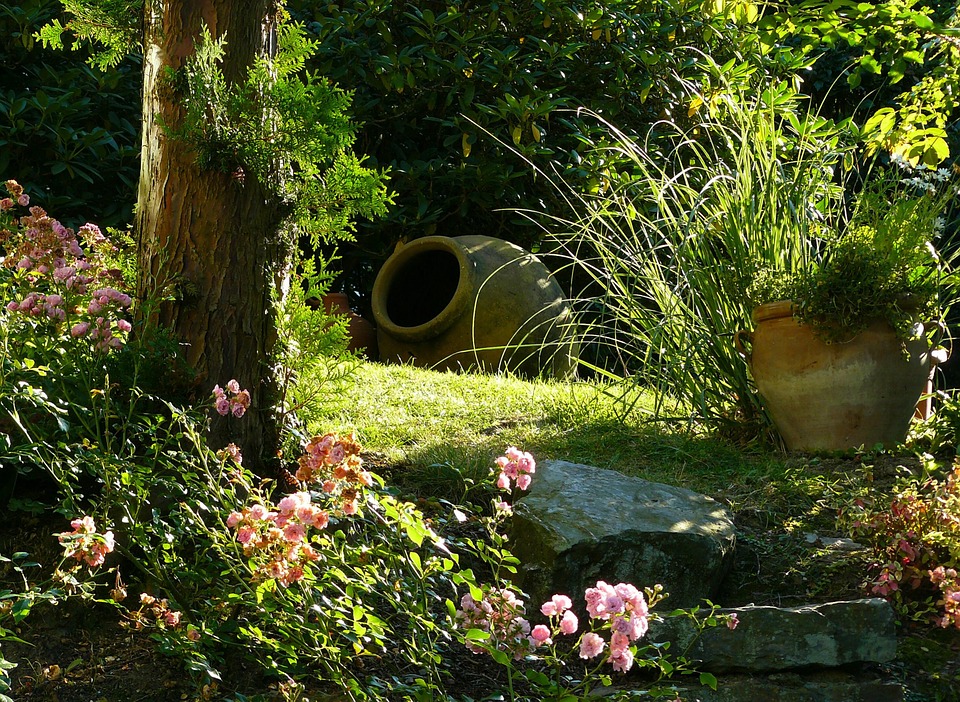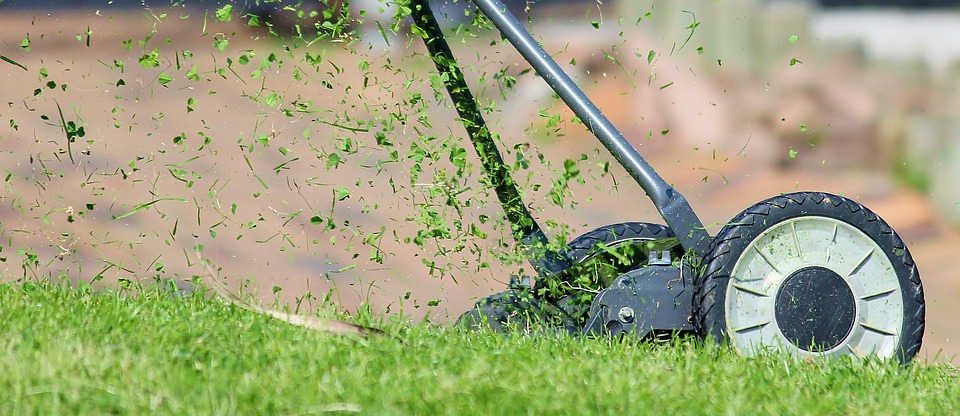
Spring is a time when you should turn your attention to implementing backyard landscaping ideas to renovate the area since the weather is ideal for greening up your home. Whether you select to increase the lushness of your lawn, plant a garden or add trees or shrubs to your backyard, the warmth and rains of the spring help your elements to thrive and grow. Before you proceed, though, you must make a landscape design plan to follow to ensure that you reach the ultimate goal of greening up your backyard.

Is a Lush Lawn Your Goal for a Landscape Design?
If a lush lawn is the right landscape feature for your backyard, you may be starting it from scratch. When this is the case, you will need to till the soil with that economical piece of used farm machinery that you purchased recently. The soil must be a fine texture down to a depth of, at least, six inches to ensure that the roots of the germinating seeds can reach out for the necessary nutrients and moisture from the soil to ensure the grass grows in the optimal manner. In addition, you may need to add amendments to your soil to enrich it prior to planting the seeds. Your local extension office will test your soil for free upon your request.
Another important element of starting a new lawn is the fact that you will need the correct grass seed. Certain seed is right for full sun while others are for shady backyards. Read about some examples below:
- Full-Sun Grass Seed
- Bermuda
- Saint Augustine
- Centipede
- Shade-Loving Grass Seed
- Tall Fescue
- Perennial Ryegrass
- Kentucky Bluegrass
Once you buy the right seed, spread over the prepared area with a seed spreader or by hand. Water the area and place a layer of wheat straw on top of it to retain the moisture. Keep the area damp until the seeds start to germinate. Remove the straw and deeply water once a week unless sufficient rainfall happens in your location. If you have an established lawn, it may be time to fertilize depending upon the type of grass that is in it. Ask a local nursery for the correct fertilizer and time period for your specific grass.

Garden Design Ideas
Instead of a lush lawn, you may prefer separate garden areas that you scatter throughout the backyard with only grass or stone paths in between these areas. Your second hand farm machinery once again will be useful for preparing the soil for these areas. Draw a layout of your garden design ideas to ensure that your separate areas do not overcrowd your backyard. You need to provide the plants sufficient space to grow and expand. In addition, sketch in the plants you plan to add to these sections. Remember that you need to place shade plants together and full-sun plants together. On top of this, group those plants with similar nutrient and water needs in the same section.
When these garden sections have one side, two sides or three sides, always place the tallest plants in the back and then graduate down. To do this correctly, you should think about the sizes that the plants are going to be when they are fully mature. If your garden areas are four-sided, though, place the tallest plants in the center and graduate the plants down in size out from that point.
Along with all the other information about gardens, you can select a single color of plants or flowers, mix multiple colors together or plant a specific type of plant or flower. On this last one, gardeners cultivate only roses in their gardens all the time. You also can select one section to grow vegetables or a mixture of vegetables and flowers. The choice is yours.
Plants That Create Attractive Garden Edging
You may prefer to highlight each garden area with some type of garden edging plants. These plants grow in such a way that they do not detract from your flowers and other plantings. Instead, they act as an outline to enhance each section. We provide a list of possible plants for edging in the following information:
- Alyssum
- Bloody Geranium
- Liriope or Monkey Grass
- Persian Catmint
- Sedum
- Variegated Lilyturf
The above list is just a sampling of edging plants for the garden. Consult with your local nursery to learn which edging plants grow well in your location and sun exposure.

Other Landscaping Design Ideas
You can add water features such as ponds or fountains as a way to enhance all the above efforts while you also provide the soothing sounds that water makes as it moves. To further your enjoyment of your lawn or garden in the evening hours, solar-powered lights come in a variety of shapes, sizes and styles.
Act today to green up your backyard with our effective landscaping ideas or other ones. Spring weather is mild enough to provide grass and plants an ideal start, whereas, the hot summer temperatures may be too extreme to do this successfully in your backyard
